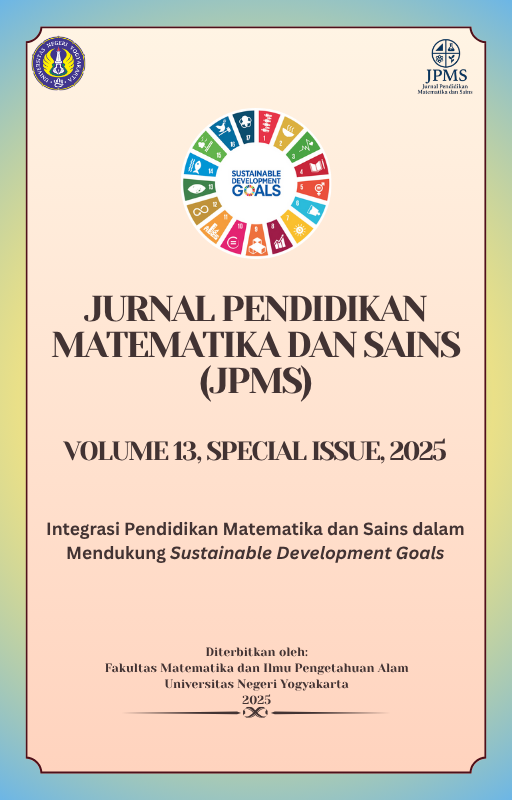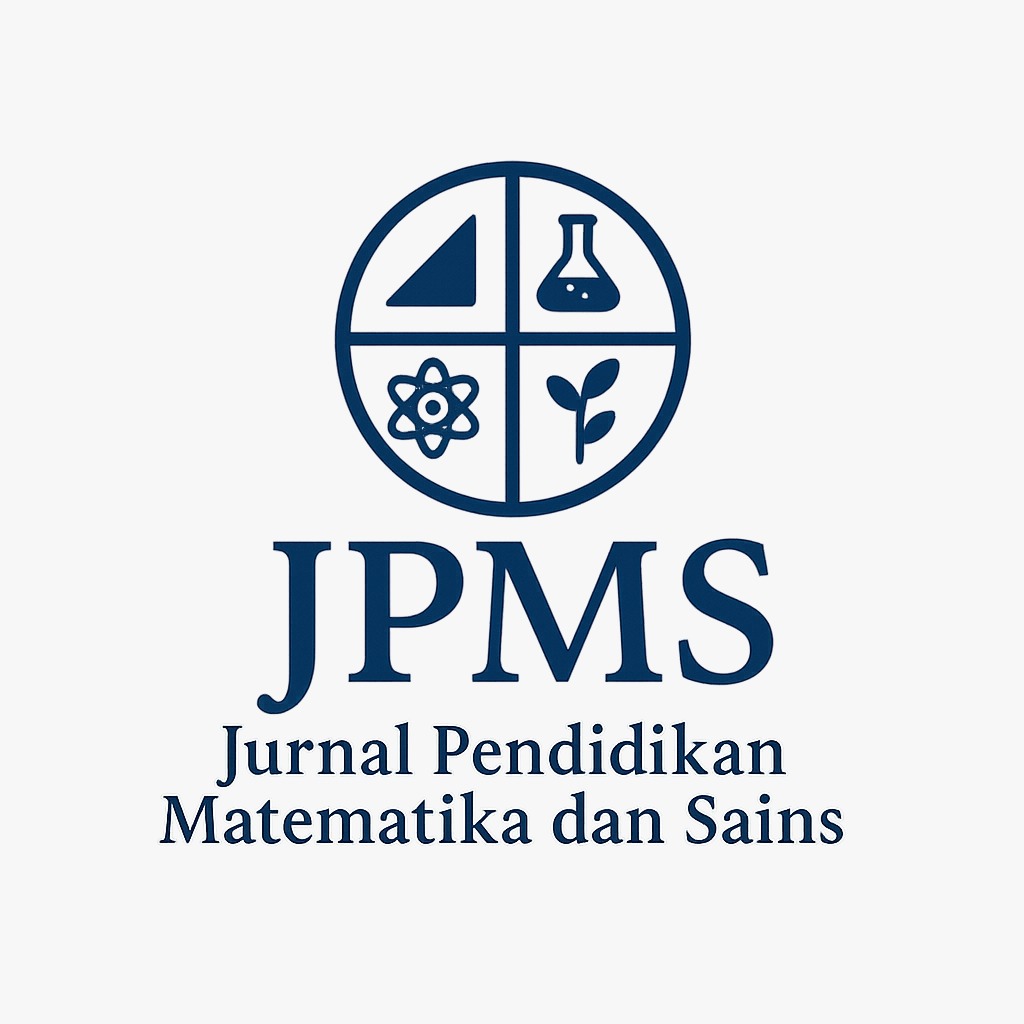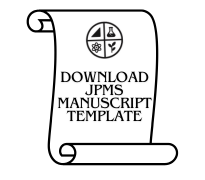Pembelajaran Berkelanjutan dengan Inkuiri Terbimbing Berbasis Multiple Representation terhadap Pemahaman Konsep dan Efikasi Diri
DOI:
https://doi.org/10.21831/jpms.v13iSpecial_issue.89004Keywords:
Efikasi diri, Inkuiri terbimbing berbasis multiple representation, Pemahaman konsepAbstract
Pendidikan yang berkualitas saat ini telah menjadi program pemerintahan yang terus diupayakan. Pengupayaan tersebut dilakukan untuk mencapai peningkatan pendidikan yang berkualitas. Maka, tujuan penelitian: memberikan gambaran mengenai seberapa pentingnya upaya dalam meningkatkan kualitas pendidikan melalui penelitian apakah terdapat perbedaan yang signifikan terhadap pemahaman konsep dan efikasi diri peserta didik pada pembelajaran laju reaksi menggunakan inkuiri terbimbing berbasis multiple representation dan saintifik; serta berapa persen sumbangan efektif pembelajaran inkuiri terbimbing berbasis multiple representation terhadap pemahaman konsep dan efikasi diri peserta didik SMA pada materi laju reaksi. Jenis penelitian quasi eksperimen dengan metode Posttest-Only Control Design. Jumlah sampel yaitu 68 peserta didik kelompok XI di salah satu SMA Negeri di Kaimana, dipilih menggunakan teknik random sampling. Jumlah peserta didik kelompok eksperimen dan kontrol masing-masing 34 peserta didik. Teknik MANOVA digunakan untuk menganalisis perbedaan pemahaman konsep dan efikasi diri peserta didik serta mengetahui persen pengaruh, sedangkan analisis deskriptif kuantitatf digunakan untuk menganalisis profil pemahaman konsep dan efikasi diri peserta didik. Hasil penelitian menunjukkan terdapat perbedaan signifikan pada pembelajaran laju reaksi yaitu terhadap pemahaman konsep dan efikasi diri pada hasil belajar peserta didik yang menggunakan model pembelajaran inkuiri terbimbing berbasis multiple representation dan model pembelajaran saintifik; serta sumbangan efektif penggunaan model pembelajaran inkuiri terbimbing berbasis multiple representation terhadap pemahaman konsep dan efikasi diri peserta didik pada materi laju reaksi sebesar 36,9%.
References
Abdillah, F. (2024). Peran perguruan tinggi dalam meningkatkan kualitas sumber daya manusia di indonesia. EDUCAZIONE: Jurnal Multidisiplin, 1(1), 13-24.
Ad'hiya, E., & Laksono, E. W. (2018). Development and Validation of an Integrated Assessment Instrument to Assess Students Analytical Thinking Skills in Chemical Literacy. International Journal of Instruction, 11(4), 241-256.
Agus, I. (2017). Efektivitas metode pembelajaran guided discovery learning menggunakan pendekatan kontekstual ditinjau dari kemampuan berpikir kritis, prestasi belajar dan self-efficacy matematika peserta didik SMP. [Tesis tidak diterbitkan]. Universitas Negeri Yogyakarta.
Albanani, T., Supardi, K. I., & Nuswowati, M. (2020). Pengaruh Penerapan Pembelajaran Inkuiri Terbimbing Bermuatan Multi Representasi Terhadap Pemahaman Konsep Siswa Sma. Chemistry in Education, 9(2), 23-30. http://journal.unnes.ac.id/sju/index.php/chemined.
AM, M. A., & Istiyono, E. (2022). Multiple representation ability of high school students in physics: A study of modern response theory. Thabiea: Journal of Natural Science Teaching, 5(1), 85-97.
Anderson, L. W., & Krathwohl, D. R. (Eds). (2001). Ataxonomy for learning, teaching, and assessing: A revision of Bloom’s taxonomy of educational objectives. NewYork: Longman.
Artayasa, I. P., Susilo, H., Lestari, U., & Indriwati, S. E. (2018). The Effect of Three Levels of Inquiry on the Improvement of Science Concept Understanding of Elementary School Teacher Candidates. International Journal of Instruction, 11(2), 235-248. https://doi.org/10.12973/iji.2018.11216a.
Artayasa, I. P., Susilo, H., Lestari, U., & Indriwati, S. E. (2017). The effectiveness of the three levels of inquiry in improving teacher training students’ science process skills. Journal of Baltic Science Education, 16(6), 908.
Bandura, A., Freeman, W. H., & Lightsey, R. (1999). Self-efficacy: The exercise of control. Spinger.
Bossé, M. J., & Bahr, D. L. (2008). The State of Balance Between Procedural Knowledge and Conceptual Understanding in Mathematics Teacher Education October, 2008.
Buchari, A. (2018). Peran guru dalam pengelolaan pembelajaran. Jurnal Ilmiah Iqra, 12(2), 106-124. http://journal.iain-manado.ac.id/index.php/JII/article/view/897/691.
Feyzioğlu, B. (2019). The role of inquiry-based self-efficacy, achievement goal orientation, and learning strategies on secondary-school students’ inquiry skills. Research in Science & Technological Education, 37(3), 366-392.
Filippou, K. (2019). Students academic self-efficacy in international master’s degree programs in Finnish Universities. International Journal of Teaching and Learning in Higher Education, 31(1). Retrieved from https://eric.ed.gov/?id=EJ1206968.
Gemnafle, M., & Batlolona, J. R. (2021). Manajemen pembelajaran. Jurnal Pendidikan Profesi Guru Indonesia (JPPGI), 1(1), 28-42. : https://ojs3.unpatti.ac.id/index.php/jppgi2019/index.
Guntari, Y., Aditiani, F. J., Haq, H. D., Firmansyah, R. Y., & Murtado, R. K. A. (2023). SUSTAINABLE DEVELOPMENT GOALS (SDGs) Implementasi SDGs Pendidikan Desa Berkualitas Di Desa Tanjungsari Kecamatan Sadananya Kabupaten Ciamis.
Handayani, S., & Wilujeng, I. (2017). Pengembangan subject specific pedagogy berbasis inkuiri untuk meningkatkan keterampilan proses dan motivasi belajar IPA. Jurnal Pendidikan Matematika Dan Sains, 5(1), 22-35.
Haryadi, R., & Pujiastuti, H. (2020, April). PhET simulation software-based learning to improve science process skills. In Journal of Physics: Conference Series (Vol. 1521, No. 2, p. 022017). IOP Publishing. https://iopscience.iop.org/article/10.1088/1742-6596/1521/2/022017/pdf.
Hasbullah, H., Halim, A., & Yusrizal, Y. (2018). Penerapan pendekatan multi Representasi terhadap pemahaman konsep gerak lurus. JIPI (Jurnal IPA & Pembelajaran IPA), 2(2), 69-74. https://doi.org/10.24815/jipi.v2i2.11621.
Helsy, I., & Andriyani, L. (2017). Pengembangan bahan ajar pada materi kesetimbangan kimia berorientasi multipel representasi kimia. Jurnal Tadris Kimiya, 2(1), 104-108. http://dx.doi.org/10.15575/jta.v2i1.1365.
Hidayati, O., & Sari, R. A. I. (2023). Peningkatan hasil belajar siswa pada topik larutan penyangga melalui pembelajaran multi level representasi. Research and Practice of Educational Chemistry, 2(1).
Husna, N., & Nurhayati, N. (2018). Pengembangan Pembelajaran Scientific Berbasis Multirepresentasi Untuk Menunjang Pembelajaran Matematika dalam Kurikulum 2013. JPMI (Jurnal Pendidikan Matematika Indonesia), 3(2), 74-80. https://journal.stkipsingkawang.ac.id/index.php/JPMI/article/view/729/pdf.
Indayatmi, I. (2017). Peningkatan Hasil Belajar Kimia melalui Model Chemisong pada Peserta Didik Kelompok X Kimia Analisis Smk. EDUSAINS, 9(1). http://dx.doi.org/10.15408/es.v9i1.2878.
Khoirul, A. (2016). Pembelajaran Berbasis Inkuiri Metode dan Aplikasi. Yogyakarta: Pustaka Pelajar.
Krismiyati, K. (2017). Pengembangan Sumber Daya Manusia dalam Meningkatkan Kualitas Pendidikan di SD Negeri Inpres Angkasa Biak. Jurnal Office, 3(1), 43-50. https://ojs.unm.ac.id/jo/article/download/3459/1951.
Langitasari, I. (2016). Analisis Kemampuan Awal Multi Level Representasi Mahasiswa Tingkat I pada Konsep Reaksi Redoks. EduChemia (Jurnal Kimia dan Pendidikan), 1(1), 14-24. https://jurnal.untirta.ac.id/index.php/EduChemia/article/viewFile/436/320.
Llewellyn, D. (2011). Differentiated science inquiry. Corwin A Sage
Company.
Llewellyn, D. (2013). Teaching high school science through inquiry and
argumentation. (Second edition). Corwin A Sage Company.
Marshall, J. C., Smart, J. B., & Alston, D. M. (2017). Inquiry-based instruction: A possible solution to improving student learning of both science concepts and scientific practices. International journal of science and mathematics education, 15(5), 777-796.
Mustakim, Z. (2017). Strategi dan metode pembelajaran.
Nafakoti, N., & Atun, S. (2025). Pengaruh Inquiry-based Contextual Learning terhadap Kemampuan Berpikir Kritis dan Efikasi Diri pada Materi Laju Reaksi dalam Menyongsong Pendidikan yang Berkualitas. Jurnal Pendidikan Matematika dan Sains, 13(Special_issue), 102-114.
Nurfatimah, S. A., Hasna, S., & Rostika, D. (2022). Membangun kualitas pendidikan di Indonesia dalam mewujudkan program Sustainable Development Goals (SDGs). Jurnal Basicedu, 6(4), 6145-6154.
Nurmarwaa, S., Raraningrum, A. O., Wardani, S. I., & Setiaji, B. (2022). Articulate Storyline 3 sebagai Media Pembelajaran Interaktif di Masa Pandemi Covid-19 untuk Meningkatkan Penguasaan Konsep Siswa SMA pada Hukum Kekekalan Momentum: Uji Kelayakan. Jurnal Pendidikan Matematika Dan Sains, 10(1), 35-42.
Oktarina, H. (2023). Peningkatan Penguasaan Konsep dan Efikasi diri Siswa SMA melalui Model Process Oriented Guided Inquiry Learning (POGIL) pada Konsep Pembuatan Koloid. Research and Practice of Educational Chemistry, 2(1).
Permatasari, M.B., Rahayu, S., & Dasna, I.W. (2022). Chemistry Learning Using Multiple Representations: A Systematic Literature Review. Journal of Science Learning.
Pratama, F. I., Rohaeti, E., & Laksono, E. W. (2025). Building sustainable education with the literacy and research-oriented cooperative problem-based learning: A bridge in the activeness of chemistry education students. Jurnal Pendidikan Matematika dan Sains, 13(Special_issue), 61–68. https://doi.org/10.21831/jpms.v13iSpecial_issue.88392
Pratama, F. I., Rohaeti, E., Laksono, E. W., & Apriliana, A. (2025). Literacy and research-oriented problem-based learning: exploration of implementation in classroom learning. Jurnal Pendidikan Matematika dan Sains, 13(1), 70–76. https://doi.org/10.21831/jpms.v13i1.82391
Priyasmika, R. (2021). The Effect of Multiple Representation-Based Guided Inquiry on Learning Outcomes Reviewed from Scientific Thinking Skills. EduChemia (Jurnal Kimia dan Pendidikan).
Purwanti, A., Sutopo, S., & Wisodo, H. (2017). Penguasaan Konsep Materi Kinematika pada Siswa SMA Kelompok X dengan Menggunakan Pembelajaran Multirepresentasi. Jurnal Pendidikan: Teori, Penelitian, dan Pengembangan, 2(4), 575-578. http://journal.um.ac.id/index.php/jptpp/article/download/8980/4303.
Rahayu, M. S., Hasan, I., Asmendri, A., & Sari, M. (2023). Relavansi kurikulum dan pembelajaran dalam pendidikan. Dharmas Education Journal (DE_Journal), 4(1), 108-118.
Rustandi, N. (2023). Implementasi Strategi Pembelajaran Inkuiri dalam Meningkatkan Motivasi Belajar Siswa: Implementation of Inquiry-Based Learning Strategy to Enhance Students' Learning Motivation. Kharismatik: Jurnal Ilmu Pendidikan, 1(1), 28-39.
Safitri, T. (2024). Pengaruh Penerapan Model Pembelajaran Contextual Teaching And Learning (Ctl) Teradap Hasil Belajar Siswa Pada Materi Laju Reaksi (Doctoral Dissertation, Universitas Islam Negeri Sultan Syarif Kasim Riau).
Sahyar & Hastini, F. (2017). The effect of scientific inquiry learning model based on conceptual change on physics cognitive competence and science process skill (SPS) of students at senior high school. Journal of Education and Practice, 8(5), 120-126.
Santos, V. C., & Arroio, A. (2016). The representational levels: Influences and contributions to research in chemical education. Journal of Turkish Science Education (TUSED), 13(1).
Sirojudin, D., & Waqfin, M. S. I. (2020). Manajemen Sumberdaya Manusia (SDM) dalam Meningkatkan Kualitas Pendidikan di SMA 1 Darul Ulum. Jurnal Education and Development, 8(4), 275-275.
Solomon, Y., & Croft, T. (2016). Understanding undergraduate disengagement from mathematics: Addressing alienation. International Journal of Educational Research, 79, 267-276. https://doi.org/10.1016/j.ijer.2015.10.006.
Sugiyono. (2017). Metode Penelitian Kuantitatif, Kualitatif, dan R&D. Alfabeta.
Sundami, N., & Azhar, M. (2019). Pengembangan Modul Kesetimbangan Kimia Berbasis Inkuiri Terstruktur Dengan Menggunakan Tiga Level Representasi Kimia Untuk Siswa Kelompok XI SMA. Edukasi Kimia, Volume 1, Nomor 1.
Tima, M. T., & Sutrisno, H. (2020). Pengaruh Pembelajaran Pemecahan Masalah Berbasis Representasi Multipel Pada Materi Kesetimbangan Kimia Terhadap Efikasi Diri Siswa. Jurnal Pendidikan Kimia Indonesia, 4(2), 70-77. https://ejournal.undiksha.ac.id/index.php/JPK/article/download/21896/16611.
Tsai, C. Y., & Huang, T. C. (2018). The relationship between adult self-efficacy and scientific competencies: the moderating effect of gender. International Journal of Science and Mathematics Education, 16(1), 91-106. https://doi.org/10.1007/s10763-017-9869-4.
Widiansyah, A. (2018). Peranan sumber daya pendidikan sebagai faktor penentu dalam manajemen sistem pendidikan. Cakrawala-Jurnal Humaniora, 18(2), 229-234. https://doi.org/10.31294/jc.v18i2.
Wilatika, R. A. S. A., & Yonata, B. (2022). Implementation of guided inquiry learning model to exercise students critical thinking skills on reaction rate material. Jurnal Pijar Mipa, 17(1), 34-40.
Yuliastini, I. B., Rahayu, S., Fajaroh, F., & Mansour, N. (2018). Effectiveness of POGIL with SSI Context on Vocational High School Students Chemistry Learning Motivation. Jurnal Pendidikan IPA Indonesia, 7(1), 85-95. https://journal.unnes.ac.id/nju/index.php/jpii/article/viewFile/9928/7628.
Yunianta, T. N. H., Suryadi, D., Dasari, D., & Herman, T. (2023). Textbook Praxeological-Didactical Analysis: Lessons Learned from the Indonesian Mathematics Textbook. Journal on Mathematics Education, 14(3), 503-524.
Downloads
Published
How to Cite
Issue
Section
Citation Check
License

This work is licensed under a Creative Commons Attribution-ShareAlike 4.0 International License.
Jurnal Pendidikan Matematika dan Sains allows readers to read, download, copy, distribute, print, search, or link to its articles' full texts and allows readers to use them for any other lawful purpose. The journal allows the author(s) to hold the copyright without restrictions. Finally, the journal allows the author(s) to retain publishing rights without restrictions
- Authors are allowed to archive their submitted article in an open access repository
- Authors are allowed to archive the final published article in an open access repository with an acknowledgment of its initial publication in this journal

This work is licensed under a Creative Commons Attribution-ShareAlike 4.0 Generic License.





